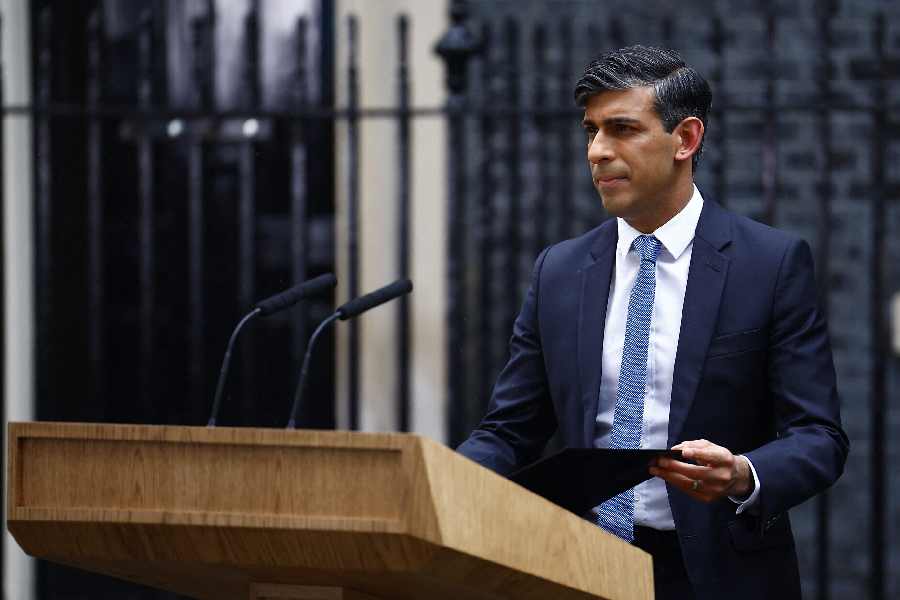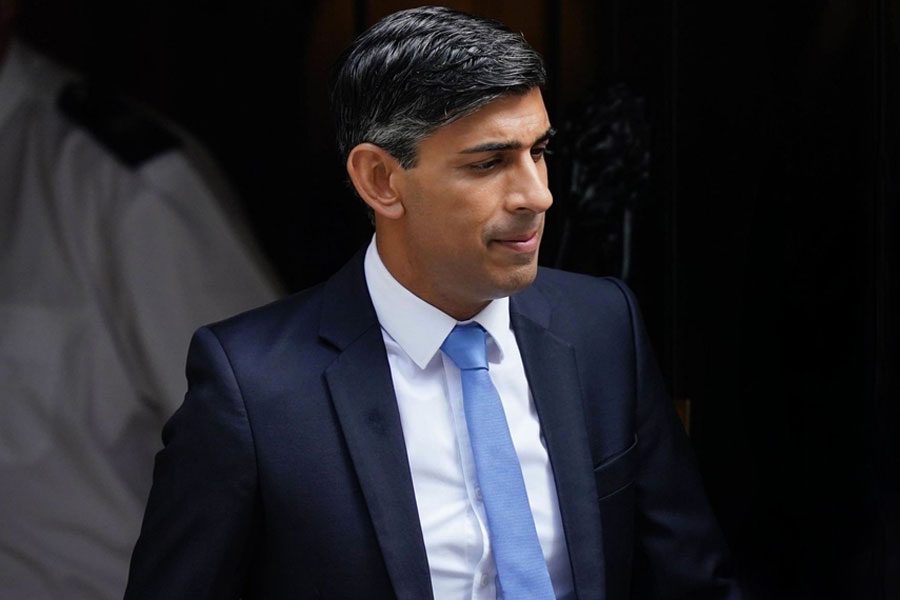British Asian beer baron Karan Bilimoria likes to proudly point out that his prediction did come true. A couple of decades ago, Bilimoria made what seemed like a farfetched forecast: that an Asian would be Britain's prime minister within 20 years.
That part has come true. Only it hasn't been the dramatic success story Bilimoria was hoping for. Rishi Sunak has been the nightwatchman sent out to play the last few overs before the Conservatives party's 14-year reign comes to an inevitable end. Even his opponents decided it wasn't worth toppling him because the party couldn't possibly win the elections that had to happen by January.
From the subcontinent there are two ways of looking at Sunak and his all-too-brief reign (he became PM on October 24, 2022). Firstly, for British Indians, it might be a matter of pride and may have raised their status in society.
But does having an Indian-origin prime minister like Sunak do India any good? The answer here is almost certainly in the negative. Sunak was very clearly friendly to India (but not much more than other British prime ministers). But did he further the cause of India-British relations?
Cross the Atlantic to the United States. Take a look there at vice-president Kamala Harris. She's half-Indian and has talked often about her Tamilian grandfather and how much she learnt from him. But Harris has been careful not to visit India after climbing to her position a heartbeat from the presidency. That's slightly worse than Barack Obama who did visit his father's home country Kenya briefly. There's also the possibility that Harris isn't enthusiastic about the Modi government. Her sister had made her anti-BJP feelings quite public via twitter (now X).
Yes. The UK has been courting India and working hard to close a trade deal. But those trade talks are on ice amid discord over British demands for big whisky and car tariff concessions and Indian calls for more worker mobility. A trade pact with India, the world’s fastest-growing economy, would have been a feather in the cap for Sunak as Britain’s failed to clinch any substantive trade deals since Brexit. In fairness, though the talks had been stumbling since they were started by ex-prime minister Boris Johnson who was very open about his warm feelings toward India. Johnson’s second wife, Marina Wheeler, was, incidentally, also half-Indian.
While the US has been courting India, that's because of the Red Dragon to our east and Harris has played no role in bringing New Delhi and Washington together.
Other Indian-origin leaders and senior politicians have been rising to the top all around Europe. Take Antonio Costa who was Portugal's prime minister till last year. Costa, whose father was born to a Goan family in Mozambique, was happy to declare his pride over his Goan roots. He and Prime Minister Narendra Modi have had three official meetings. Costa also visited his 200-year-old family home in Goa in 2017. The ministry of external affairs says that "the high level political exchanges between India and Portugal have imparted a robust momentum to bilateral relations” in areas from science and technology to defence and startups. Still, there’s no evidence to suggest that success had anything to do with Costa's Indian origins.
What about Leo Varadkar, Ireland's taoiseach or prime minister until recently? Varadkar's father was a doctor from India. And Varadkar himself worked as a doctor briefly in Mumbai when he was newly qualified. Has his leadership made a difference to the relationship between India and Ireland? The two countries have always been on cordial terms but there was no distinct “home advantage” for India when Varadkar was in power.
One country where having Indians in government definitively hasn’t helped is Canada. Despite the slew of Indian-origin MPs in parliament, ties between Canada and India are at their lowest ebb ever amid tensions over the murder of a Sikh separatist in British Columbia last year. Harjit Singh Sajjan, who was the former defence minister, was not a popular figure here and suspected of having Khalistan sympathies. Prime Minister Justin Trudeau quipped after winning power in 2016 and appointing four Sikh cabinet ministers that “I have more Sikhs in my cabinet than Modi does”. That remark that did not sit well with the Prime Minister’s Office.
What next for Sunak who’s only 44 years old? The British newspapers are already making snide comments that he and his wife, Akshata, are making plans to holiday in their California apartment. Will we see him in India playing a role in one of father-in-law N. R. Narayana Murthy's business interests? Or will he get onto the international stage. With polls showing just 18 per cent support for the ruling Conservatives and 48 per cent for the opposition Labour, it’s clear Sunak won’t be returning to Downing Street, at least for the foreseeable future.











